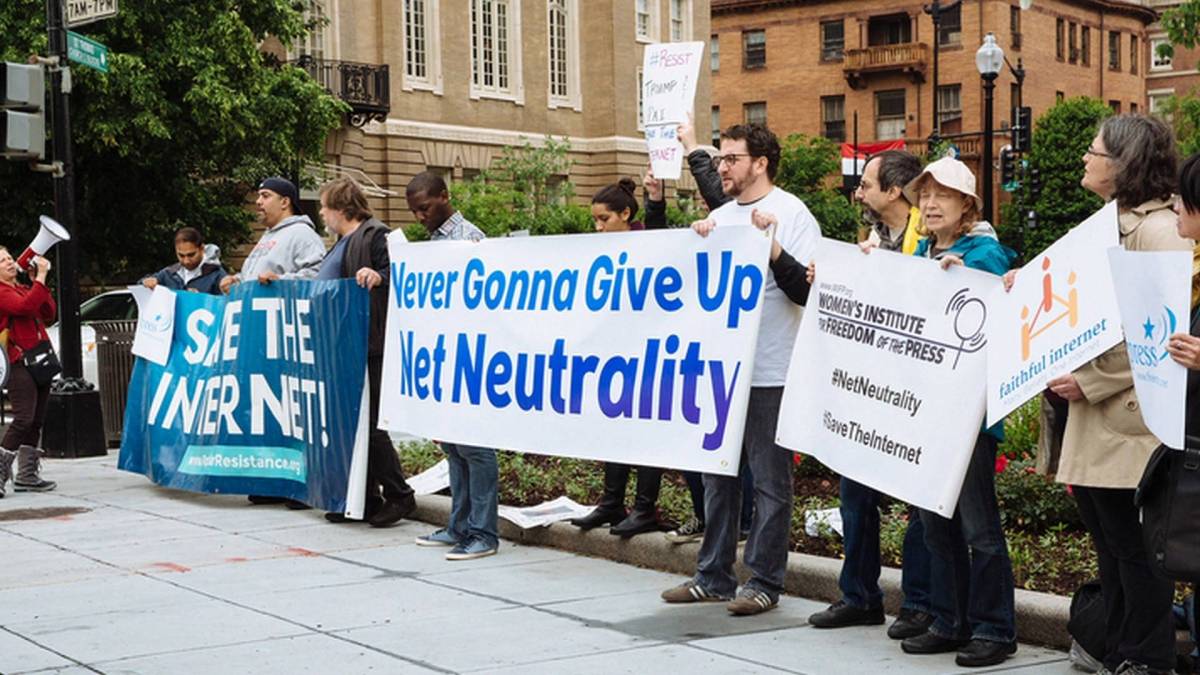California Enacts Strict Net Neutrality Law, DoJ Sues to Block It

California Gov. Jerry Brown signed a sweeping net neutrality bill into law on Sunday, requiring broadband and wireless companies such as Verizon and Comcast to maintain a level playing field online.
The tough new law comes after the Trump administration repealed Obama-era net neutrality rules prohibiting internet service providers (ISPs) from blocking, throttling or otherwise hindering access to content on the internet, and from charging for faster speeds and favoring any websites.
The net neutrality bill was approved by California lawmakers in early September, but it had been unclear if Gov. Brown would approve or veto it.
California Net Neutrality Law Enacted
The new internet law in California is the nation's toughest net neutrality measure. It reinstates the rolled-back 2015 Obama-era “Open Internet” federal regulations at the state level.
The law gives the state attorney general the mandate to evaluate potential evasion of the net neutrality rules and adds new restrictions on “zero-rating,” which allow ISPs to exempt content from certain companies (like their own streaming services) from counting against a customer’s data plan.
The new measure also bans interconnection fees, which are charges a company pays when its data enters the internet provider's network.
Federal Government Opposes New Net Neutrality Law
Following Gov. Brown’s signing of the bill, The U.S Department of Justice (DoJ) immediately responded by announcing it will sue the state of California for what it said was an overstepping of authority and enacting a law the justice department says creates burdensome, anti-consumer requirements.
“Under the Constitution, states do not regulate interstate commerce — the federal government does,” Attorney General Jeff Sessions said in a statement Sunday. “Once again the California legislature has enacted an extreme and illegal state law attempting to frustrate federal policy.”
Senator Scott Wiener (D-San Francisco), who introduced the net neutrality proposal, however, said he believed California would be able to defend the new measure in court.
“We’ve been down this road before: when [President] Trump and Sessions sued California and claimed we lacked the power to protect immigrants,” he said. “California fought Trump and Sessions on their immigration lawsuit. California won — and California will fight this lawsuit as well.”
Legal Battle over California Net Neutrality Law
Ajit Pai, the Trump-appointed Federal Communications Commission chairman, who led the push to shelve the Obama-era federal net neutrality regulations, succeeding in July when the rules were officially rolled back, said in a statement that he was pleased with the DoJ’s move to file a lawsuit.
“I look forward to working with my colleagues and the Department of Justice to ensure the internet remains ‘unfettered by federal or state regulation,’ as federal law requires, and the domain of engineers, entrepreneurs, and technologists, not lawyers and bureaucrats,” Pai said.
California, the largest economy in the US and fifth largest in the world, wields a lot of influence over how other states regulate businesses. It becomes the third state to pass its own open internet regulations alongside Washington and Oregon, and has the most thorough level of protections matching those previously provided by the Obama-era federal net neutrality regulations.
Net neutrality advocacy groups and activists have said they anticipate other states will follow California in passing laws for an “open internet,” which they argue is a crucial step to protecting open access to the internet for marginalized and impoverished communities.
Already more than 25 states have considered net neutrality protections since the FCC voted last December to reverse the Obama-era internet rules.


















![How One Homeowner's Dream Reno Turned into a Nightmare: What You Can Learn from It [node:title]](/sites/default/files/styles/video_thumbnail_bottom/public/man-painting-home-renovation.jpeg?itok=t7ET9um4)

